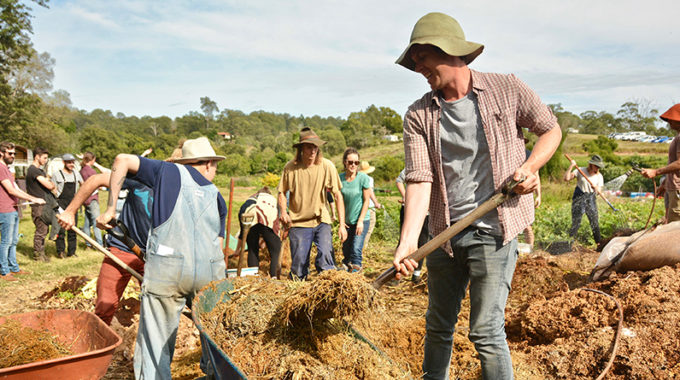Young Farmers Connect: growing as one
A new generation of young farmers is changing the face of the Australian agricultural industry. But for many first-generation farmers starting out today, the challenges they face when trying to break into the industry can become all too overwhelming. Now a national not-for-profit organisation has been formed to help our new farmers overcome these obstacles. Young Farmers Connect is a community of like-minded young farmers that cultivates networks, provides peer support and shares access to information and resources that can help our next generation of farmers succeed.
Founded in 2018, Young Farmers Connect was formed by aggregating a number of localised young farmer networks across the country. Joel Orchard, Principal Coordinator and a co-founder of the organisation, says the network was born out of a need to provide young farmers across the country with a support platform that could help them navigate the many challenges farming can present. These are challenges that Orchard has also faced.
“I’m a first-generation farmer myself,” he says. “I moved up to the Northern Rivers after graduating from a science degree in Melbourne. I wanted to take the plunge and turn farming and food production into a profession. But I just hit a heap of roadblocks with it.
“Then I connected with other young people that were interested in farming; people that hadn’t grown up on family farms or in farming communities. And it was the same for them.”
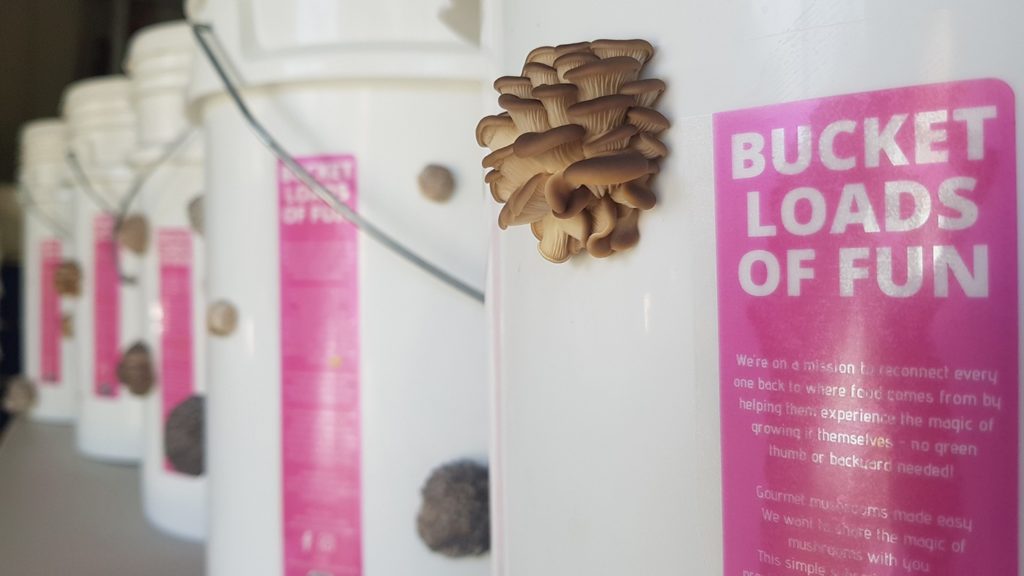
Lay of the land
The biggest barrier for most young farmers is access to land. The majority of Young Farmers Connect members are interested in small-scale farming; a sector not traditionally supported by agricultural, financial or government organisations.
“All the existing infrastructure the ag industry has doesn’t filter down to the small-scale farming sector,” Orchard says. “We recognised there was a massive gap in social infrastructure. But also support programs, industry development, training and education, even just community for first-generation farmers. There was a real need for a support platform for young people who didn’t have access to existing channels.”
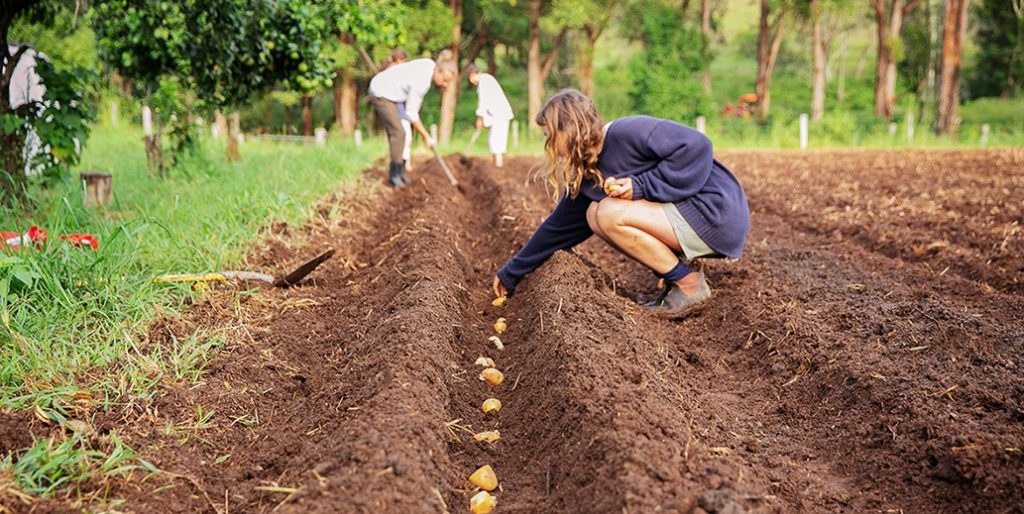
Money talks
Access to finance and capital is also a huge hurdle for young farmers to overcome. At present, Young Farmers Connect members are mainly located along the east coast of Australia. Many are also farming in peri-urban areas, where the price of land is now so high, it is far out of reach for those just starting out on their farming journey.
“If you inherit the family farm, you also inherit a business,” Orchard says. “Along with all of the existing infrastructure – irrigation tractors, sheds, coolrooms, refrigerated transport. If you’re going to start any small business from scratch, you’ve got all of these upfront costs and investments. Then added to that, farming is so high risk. You just can’t get capital investment bank loans or anything like that for small-scale farm start-ups.
“So you’ve got these young people that are full of enthusiasm, but just no way of getting the financial resources to get started. There’s a real period of grind where we lose a lot of first-time farmers within that first one to three years. And they don’t come back. Because all it takes is one slip-up, one hailstorm, one pest infestation, and they go broke.”
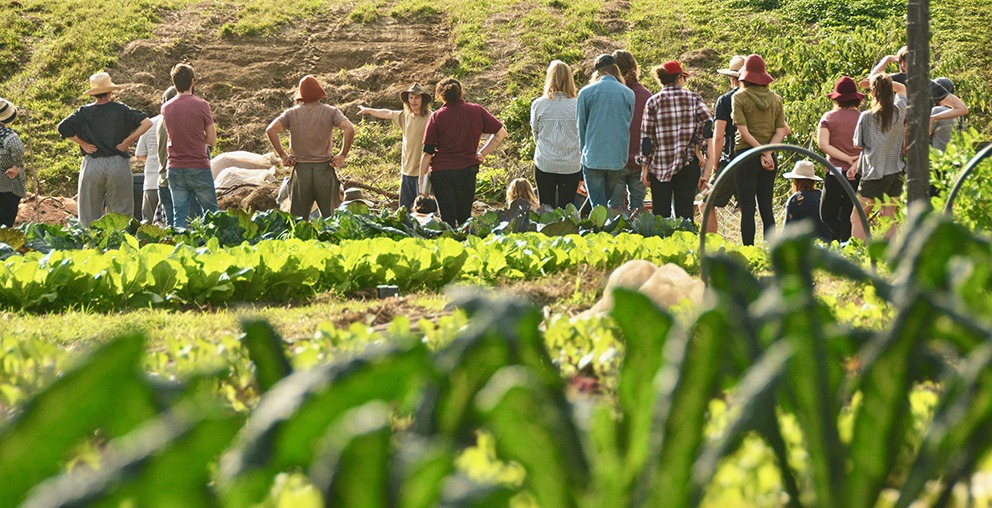
Teamwork makes the dream work
With no business ecosystem for small-scale and first-generation farmers to tap into, Young Farmers Connect has stepped in to fill that void. It has become a community where people are comfortable to share with others what they’ve learned, what mistakes they’ve made as well as what’s working well for them. It provides information on tools and equipment, soil science, ag tech and navigating landshare agreements. There are also regular field days, where members can visit farms to connect with and learn from other young farmers.
“Our mission has been to create what we call a collaborative economy rather than a competitive economy,” Orchard says. “The majority of our members share similar values, so it works well. They genuinely want to see other small-scale farmers succeed. And they’re also happy to share what they’ve learned. It has created a really supportive community.”
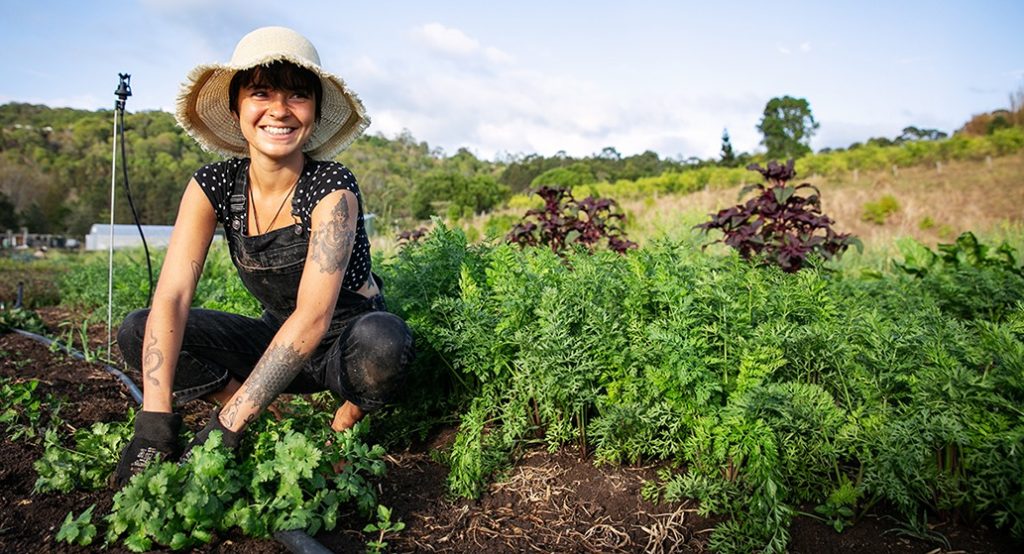
The changing face of farming
A large part of the Young Farmers Connect mission is to challenge the cultural identity of what a farmer is. Australian farming is no longer solely the realm of older white men.
“What is so firmly embedded in the Australian psyche of a farmer is this image of an older, white male who is typically quite lonely,” Orchard says. “All these whimsical pictures we see of a guy standing in a field, on his own; it’s really not appealing to the next generation of farmers. And it’s not a picture that represents the new generation of farmers, either.
“For instance, there are so many more women in the industry now. That image also doesn’t reflect a shift in multiculturalism or the engagement of Indigenous peoples and their knowledge. It doesn’t translate to people of the LGBTI community. There are all these demographics that are often overlooked. And that’s who we represent.”
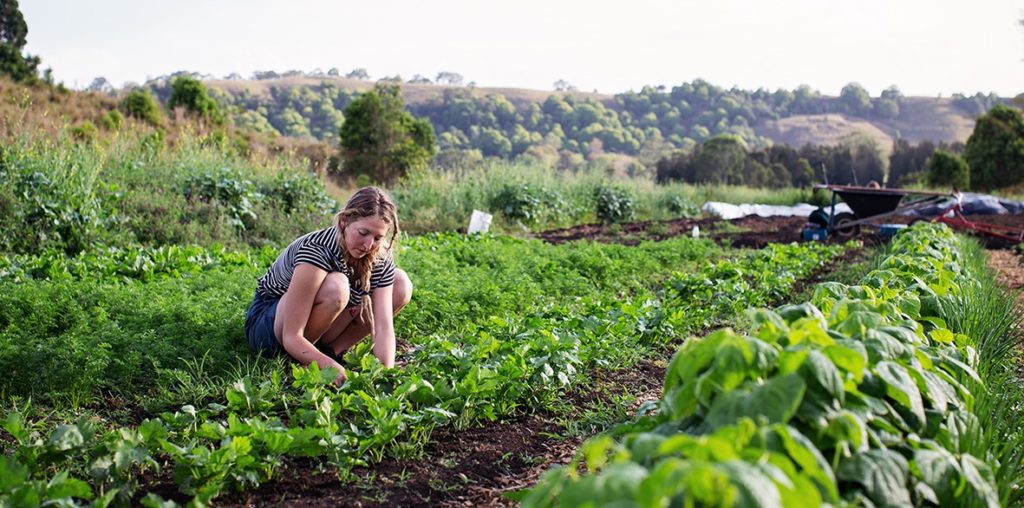
Food for all
This community of like-minded people also shares a commitment to landcare, the local food movement, sustainable farming and regenerative agriculture. There’s also a focus on food justice – ensuring that good quality food is available to all people.
“Most of our members aren’t just in farming for the sake of farming,” Orchard says. “They’re also interested in community development and all these other issues as well.
“We’ve all recognised that local food economies and short supply chains offer so much more resilience in times of crisis. We’ve seen that now with COVID, which has had massive impacts on our industrial food chain; you’ve got supermarket shelves that are unable to keep up. Meanwhile, farmers’ markets are filled with beautiful, vibrant produce.”
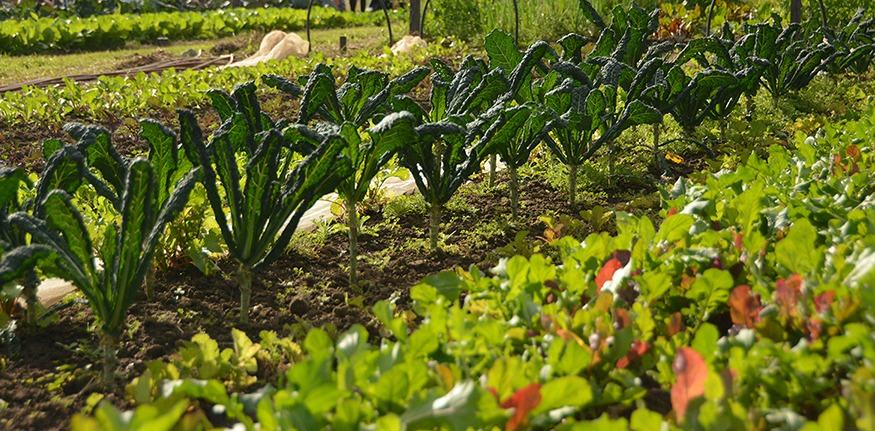
Local heroes
So what can we, as consumers, do to help support our young farmers, to ensure that the next farming generation can continue to provide our nation with a secure food supply?
“Buy local,” Orchard says. “I always come back to local food as one of the biggest, easiest and most potent ways that the consumer can participate in supporting sustainable food systems. And it inevitably supports more sustainable land use as well.
“Small-scale, local farms have a much lighter footprint on the earth. They’re less resource-intensive. And the food they produce is also picked at a higher level of ripeness and has travelled less distance. So it’s more nutritious as well. I’d say to consumers, shorten your supply chain as far as you can. The phrase I like to use is, if you can shake the hand of the farmer that’s feeding you, you’ve closed that loop right down to a single transaction.”
Supporting our young farmers and our local food systems is essential if we are to build community resilience and guarantee our food security in the years (and pandemics) to come. Organisations like Young Farmers Connect can play a key role in ensuring the next generation of farmers has the support and the resources they need to succeed.
“We recognise the small-scale farming sector is so vital to our food security,” Orchard says. “And yet, it’s the one thing that government doesn’t fund, resource or support. So Young Farmers Connect is here to advocate that we really need that support.”
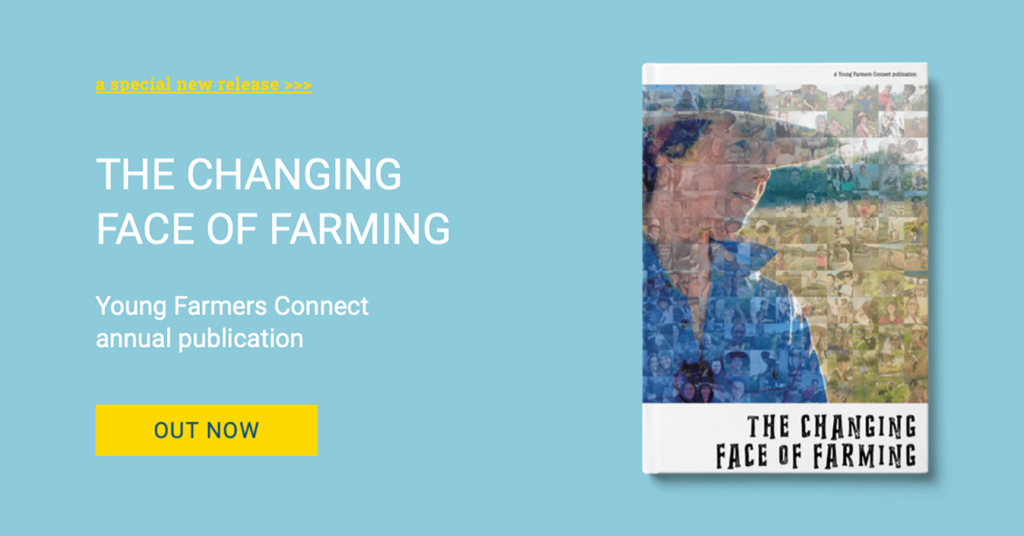
Read all about it
Young Farmers Connect has recently launched a new annual magazine, The Changing Face of Farming. The magazine focuses on our food systems and farming culture, with all proceeds supporting young regenerative and small-scale farmers. The inaugural issue celebrates the voices and roles of women working in food and agriculture. You can buy your copy here. For more on Young Farmers Connect, head to the website


